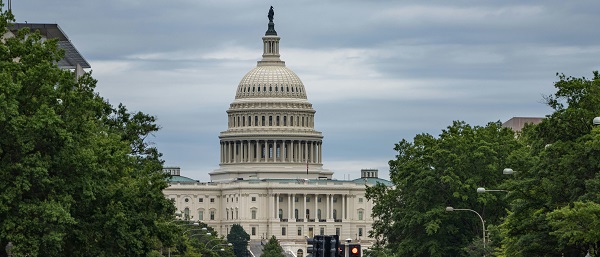
Welcome to the D.C. Thunderdome.
Thanks to DOGE and four wunderkind coders in Treasury’s basement, Americans learned this week that their government sent millions to fund a “DEI musical” in Ireland, a “transgender comic book” in Peru, electric vehicles in Vietnam, and an Anthony Fauci exhibit at the NIH Museum.
Faster than Ludicrous+ mode on a Tesla, the Trump admin’s new code bros are sifting through the financial ledger of America’s spending. Just 20 days in office and the new administration has saved the American taxpayer billions of dollars — exactly what Trump promised on the campaign trail. And as the president’s third week unfolded, news worsened for Democrats and America’s permanent bureaucratic state.
It seems the permanent bureaucracy borrowed the U.S.S.R.’s media playbook, funneling millions to left-wing news organizations such as The New York Times, Politico and Reuters. Evidently it wasn’t enough that a Republican in the newsrooms of our state-run media outlets, PBS and NPR, is rarer than a cogent sentence from Kamala.
Democrats, meanwhile, have decided that this Deathstar boondoggle of government spending at its worst is the hill they want to die on. Conservatives watched with glee as Rep. Maxine Waters, Sen. Chuck Schumer, et al, led the Charge of the Lightweight Brigade to USAID’s former headquarters. Cue dopey chant: “wE Will wiN!” (2025 update—no, you didn’t).
Before all the spending porn (as the great Louisiana wag, Senator John Kennedy dubbed it), Democrats’ opinion polls were in the gutter, with a disapproval rating of 57%.
Do the Dems think rushing to the barricades to defend out-of-control spending will earn them the respect and admiration of the American public? Expect their approval ratings to continue to sink like the Hindentanic.
USAID is just the beginning.
Wait until DOGE bites into the Department of Defense, which has never passed an audit.
In 2019 while on reserve duty at the Pentagon, I was thrown into yet another meeting chockablock with PowerPoint slides, so beloved by our military. This particular meeting was to cover the results of a service-wide audit. To summarize about 187 slides and 2 hours: we failed.
All the top brass in the room somberly listened to the auditors describe $5 billion worth of missing aircraft engines, leases for buildings and land that did not exist, accounting systems closer in age to the abacus than a modern spreadsheet, and miles of missing debits and credits.
As the most junior officer in the room, I kept quiet but closely studied the faces of my superiors. They too, kept quiet, only murmuring “next slide” as disaster after financial disaster was flashed across the screens.
My inner fiscal hawk prayed that the service chief would flip the table over and channel Col. Nathan “YOU CAN’T HANDLE THE TRUTH” Jessep. But he remained impassive and the meeting dissolved with a whimper and no plans for reform.
That night leaving D.C., I happened to bump into a very senior republican senator at Reagan National Airport and thought it my civic duty to share the (unclassified) events of earlier in the day. I told the venerable appropriator that the audit had revealed billions in waste, fraud, and abuse, and even suggested he should make a request to see the failed audit for himself.
(In the hindsight afforded by three years working in the U.S. Senate, I now know how utterly naive this moment was).
He paused a moment, then said, “Well, you know how these things are. That’s Washington for you.”
I felt sick at the time, which is likely the same feeling many Americans are having this week as they see the grift laid bare in our nation’s capital.
But the good news is that Trump and his DOGE team have restored the hope that government might be right-sized and returned to solid financial footing.
On Friday, when he was asked about the job Elon Musk is doing, the President remarked, “I think we’re going to be very close to balancing budgets for the first time for many years.”
What a tantalizing prospect — a government that spends within its means may truly bring about the golden age of America promised in the president’s inaugural address.
Morgan Murphy is military thought leader, former press secretary to the Secretary of Defense and national security advisor in the U.S. Senate.
Related












